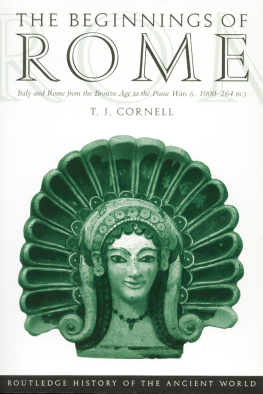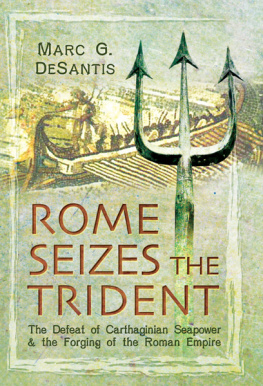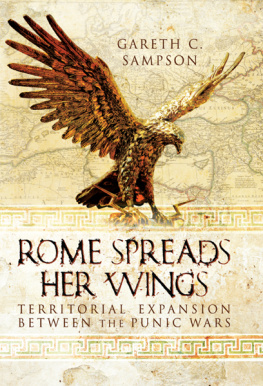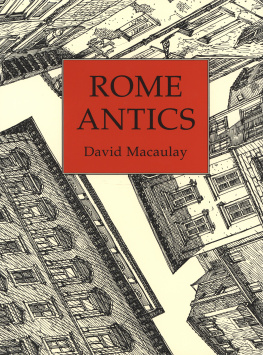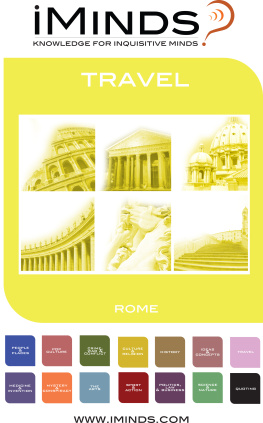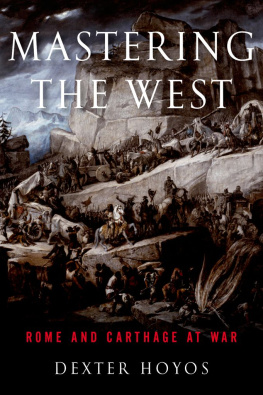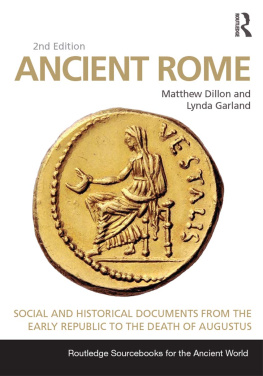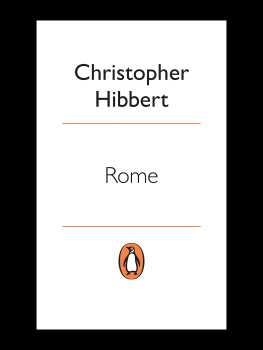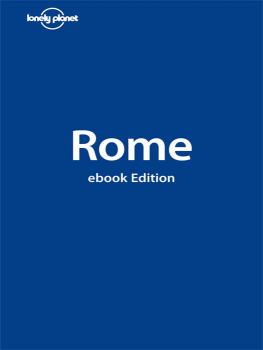THE BEGINNINGS OF ROME
The beginnings of Rome, once thought to be lost in the mists of legend, are now being revealed by an ever-increasing body of archaeological evidence, much of it unearthed during the past twenty-five years. This new material has made it possible to trace the development of Rome from an iron-age village to a major state which eventually outstripped its competitors and became a Mediterranean power. The study of this period raises acute questions of historical method, demanding analysis of many different kinds of archaeological evidence in conjunction with literary sources.
Professor Cornell uses the results of up-to-date archaeological techniques and takes current methodological debates into account. The Beginnings of Rome offers new and often controversial answers to major questions such as Romes relations with the Etruscans, the conflict between patricians and plebeians, the causes of Roman imperialism and the growth of a slave-based economy.
Covering the period from c. 1000 BC to 264 BC , The Beginnings of Rome is the most comprehensive study of this subject. It is essential reading for all students of Roman history.
T.J. Cornell is Professor of Ancient History at the University of Manchester.
ROUTLEDGE HISTORY OF THE
ANCIENT WORLD
General Editor: Fergus Millar
THE ANCIENT NEAR EAST c. 3000330 BC
Amlie Kuhrt
THE GREEK WORLD 479323 BC
Simon Hornblower
THE BEGINNINGS OF ROME c. 1000264 BC
T.J. Cornell
THE MEDITERRANEAN WORLD IN LATE ANTIQUITY
AD 395600
Averil Cameron
GREECE IN THE MAKING 1200479 BC
Robin Osborne
THE ROMAN WORLD
44 BCAD 180
Martin Goodman
THE GREEK WORLD AFTER ALEXANDER
32330 BC
Graham Shipley
THE BEGINNINGS
OF ROME
Italy and Rome from the Bronze Age
to the Punic Wars (c. 1000264 BC)
T.J. Cornell

First published 1995
by Routledge
2 Park Square, Milton Park, Abingdon, Oxon OX14 4RN
Simultaneously published in the USA and Canada
by Routledge
270 Madison Avenue, New York, NY 10016
Routledge is an imprint of the Taylor & Francis Group, an informa business
1995 T.J. Cornell
All rights reserved. No part of this book may be reprinted or reproduced or utilized in any form or by any electronic, mechanical, or other means, now known or hereafter invented, including photocopying and recording, or in any information storage or retrieval system, without permission in writing from the publishers.
British Library Cataloguing in Publication Data
Cornell, Tim
Beginnings of Rome 1000264 B.C.
(Routledge History of the Ancient World)
I. Title II. Series
937.01
Library of Congress Cataloging in Publication Data
Cornell, Tim.
The beginnings of Rome, 1000264 B.C./T.J. Cornell.
p. cm. (Routledge history of the ancient world)
Includes bibliographical references and index.
1. RomeHistoryKings, 753510 B.C.
I. Title.II. Series.
DG233.C671995
937.01dc209443757
ISBN 9780415015950 (hbk)
ISBN 9780415015967 (pbk)
For Mary
CONTENTS
FIGURES
MAPS AND TABLES
MAPS
TABLES
Preface
This book is about the origins of Rome. By this I mean not simply the remote beginnings of the city, but the origins of Rome as a major power in the Mediterranean world. The aim, in other words, is to trace the development of Roman society and the Roman state from their first visible beginnings down to the time, in the early third century BC , when all of peninsular Italy was firmly under Roman control. The terminal date of 264 BC has been chosen not only as a convenient stopping point, but as a symbolic moment; for in that year the Romans embarked on their first major overseas adventure, when they sent an army to Sicily to confront the Carthaginians. The start of the first Romano-Carthaginian war marked the beginning of the end for Carthage, and ultimately for all the other major powers of the Mediterranean basin. For Rome, it equally clearly signalled the end of the beginning.
As a subject for historical inquiry the question of the origins of Rome, on this broad definition, scarcely needs justification. To borrow a phrase from Polybius (1.1.5), who could be so idle or apathetic as not to want to know how Rome grew from nothing to become the dominant power in Italy? When, how and why did the city come into existence? Who were the Romans, and what were the secrets of their success? Such questions, one would have thought, would stimulate anyone endowed with even the most modest level of historical curiosity. We need not be surprised that the origins of Rome were the object of endless fascination and inquiry in antiquity, not only for the Romans themselves but also for their partners, rivals and enemies; nor that ancient accounts of early Rome have been preserved and intensively studied ever since.
What is surprising, and needs to be explained, is the fact that early Roman history has been largely ignored by scholars in the English-speaking world. This seems to be a curiously Anglo-Saxon phenomenon. Elsewhere the subject is flourishing not only in Italy, where Roma arcaica is probably more intensively researched than any other historical topic, and the volume of publications has far exceeded the limits of what a normal person could hope to take in, but also in other continental countries, including France, Belgium, Holland, Germany and the Scandinavian countries. In the English-speaking world, however, Roman history before the Punic Wars is regarded as a marginal topic. It is hardly ever taught in school or university courses, and almost no one chooses it as a subject for research. As for publications, most important books in English have been either translated from other languages (e.g. the work of Raymond Bloch, Georges Dumzil, Jacques Heurgon, Massimo Pallottino), or written by exiles (Andreas Alfoldi, Arnaldo Momigliano, Stefan Weinstock) and others who choose English in preference to their own languages (Einar Gjerstad, Par Goran Gierow, Endre Ferenczy, Jrgen Christian Meyer, Hendrik Versnel, Rudi Thomsen).
It is not easy to account for this state of affairs. It undoubtedly has something to do with the fact that in English-speaking countries ancient history is closely tied to the study of Classics, with the result that the periods chosen for historical study coincide with those that produced great works of literature; but this is surely not the whole explanation. We cannot (can we?) be so lacking in historical sense as to allow our choices to be determined by such arbitrary and irrelevant criteria. In any case English-speaking historians have not been deterred from tackling other areas that lie outside the main classical periods Mycenaean and dark-age Greece, for example, or the Hellenistic world, or the later Roman Empire.
In my experience the most commonly advanced justification for neglecting the early centuries of Roman history is that the evidence is too uncertain. The written accounts were all produced centuries after the events they purport to describe, and there is no way of ascertaining the truth of most of what they say. In the absence of any contemporary sources, so the argument runs, the history of Rome before the Punic Wars cannot be written. There is enough truth in this formulation to make it plausible, but one of the purposes of this book is to show that the situation is not nearly as bad as that. The evidence is indeed extremely difficult, and problems of verification are acute, but it is incorrect to say that nothing can be known about how Rome began, or how it developed during the early centuries of its existence.
Next page
